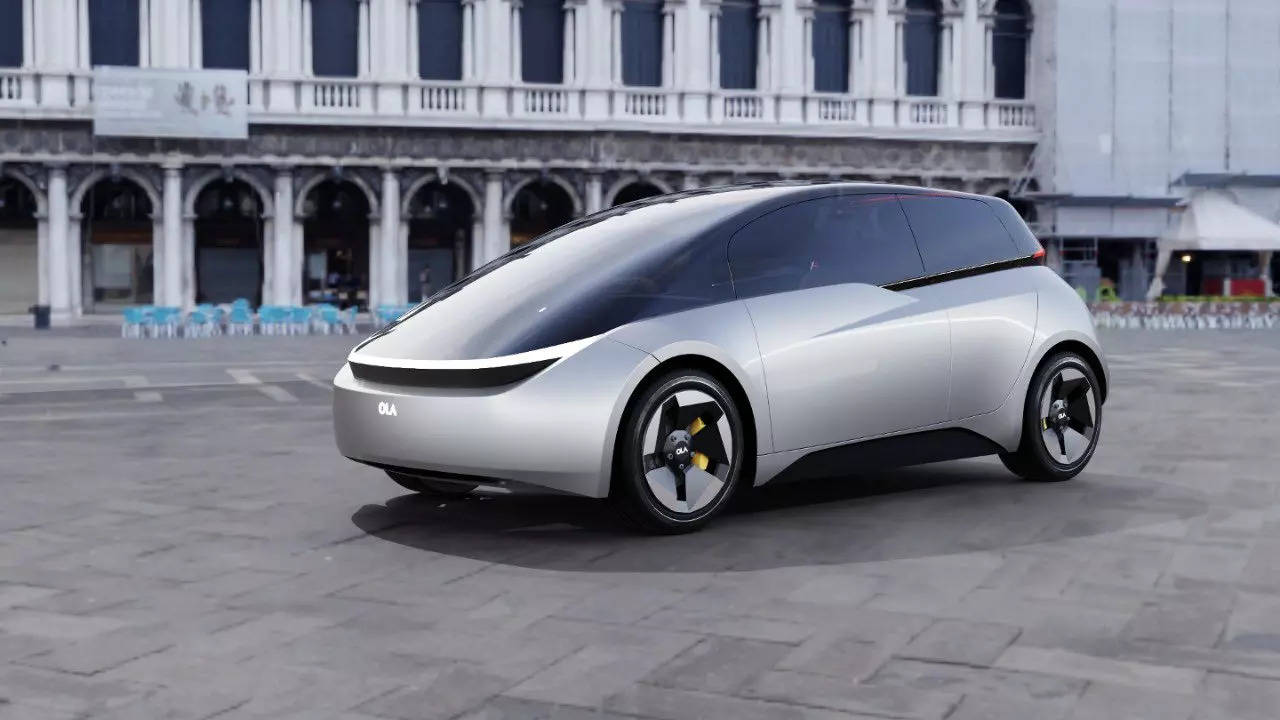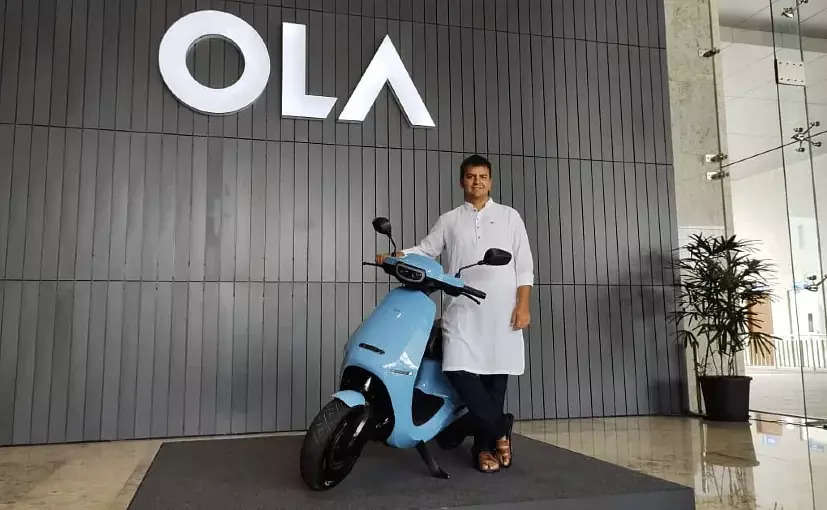
Ola Electric might have been in the news for all the wrong reasons in the last few weeks but its founder Bhavish Aggarwal is unfazed. One of its scooters S1 pro caught fire in Pune last month adding to the already raging debate on safety of EVs in the country but Aggarwal is getting ready to launch its first electric car by early 2024.
Built not just for India but for the global markets as well, it will ride on advanced autonomous technologies though Aggarwal contends his vision is to bring electric mobility for the masses and a sub INR 10 lakh price tag for India remains a target.
“The origin of electrification happened in the west with companies like Tesla, which is an iconic company and they have done a good job in technology innovation, but their products are not relevant for us in India. Even a model 3 is a luxury product. Our vision is to build electric vehicles for the masses,” Aggarwal said on Saturday. “Our focus is not just about India, but in ASEAN, Southeast Asia, Africa, Latin America, Eastern and even parts of Western Europe, the kind of vehicles people buy are different. Our focus is to electrify vehicles that the mass of the world uses–two wheelers, small cars, midsize cars. India is a very good microcosm of that, and a good representation of that market. Tesla is for the West and Ola is for the rest.”

Legacy automobile companies are still grappling with the advent of autonomous technologies and there is a level of uncertainty of its use in developing economies where infrastructure could pose a hindrance. Aggarwal however said for the first car, the technology had to be there from the start. He also gave a timeline for the launch–end 2023 or early 2024.
“Autonomous tech is moving fast so for us to be relevant on a global stage it’s important to have our own autonomous technology. So if we build our car and are going to export it outside India it needs to have autonomous capabilities otherwise we won’t be competitive in the market,” he said.
“The R&D process with the car has been ongoing for about 6-8 months within Ola. In about two years from now, we will be ready with it,” he added. “The sub INR 10 lakh category is absolutely relevant for India and globally there are some examples of products doing well in this segment especially in China. We are definitely focussed on that segment but whether we do it first or later, we have not decided yet.”
Starting off with very ambitious deadlines, Ola has struggled to meet capacity ramp up timelines while its unique direct to customer delivery model bypassing the traditional dealer route, meant consumers had to wait longer than usual to get their scooters. Other glitches on the software side have emerged as well and the fire incident has put a question mark on Ola’s engineering capabilities. Aggarwal however, remains typically defiant.
The sub INR 10 lakh category is absolutely relevant for India and globally there are some examples of products doing well in this segment especially in China. We are definitely focussed on that segment but whether we do it first or later, we have not decided yetBhavish Aggarwal, Co-Founder & CEO, Ola
“Show me one company that hasn’t had problems. Globally, manufacturers like Tesla, Volkswagen Hyundai and GM have had incidents. And statistically gasoline vehicles have a higher number of issues than EVs,” he said. “Whenever a disruptor comes into the market, it makes people uncomfortable and that increases noise levels in general. This is a new industry for everybody and the adoption curve is skyrocketing, so (some of) these instances are coming to light and everybody has a laser sharp focus on them. Which is alright but I know where the noise is coming from.”
On Sunday, Ola announced it would recall 1,441 units of the scooter from the same batch that caught fire in Pune to inspect the batteries and Aggarwal said while issues will crop up from time to time, it will do its best to solve them.
“I’m not saying that there is no issue with us but we are solving all the issues and the rate of resolutions and fixes would be probably the best in the industry because we are much more software oriented,” he said. “We control a lot of our core technology and component manufacturing ourselves. So we can we can fix things much faster than our competition.”
Critics have cited Ola’s rush to the market and alleged lack of diligence in validation and testing as the reason for the glitches. Its foray into cars even as its scooter production has not settled, has raised more eyebrows.
“Some may say this isn’t the right time to get into electric cars but we don’t think so. We think we can do both–two and four wheelers and the judgement of when is the right time should be left to us,” he said. “Our ambition is not for next year or the year after. The government is very supportive of electric mobility in India and the mantle has been thrown to entrepreneurs and that is what we are doing. We want to make India the global hub for electric mobility. It is instead for the incumbents to answer why they have not done much in all these years.”
Also Read:
















